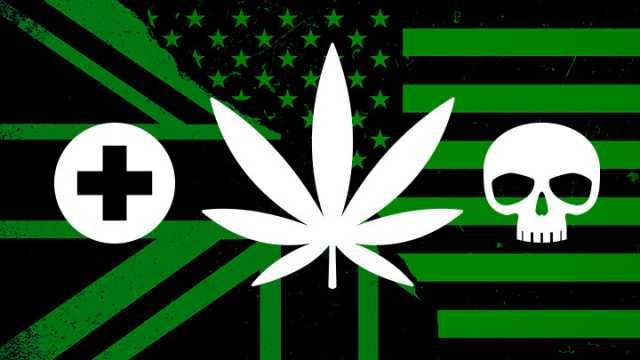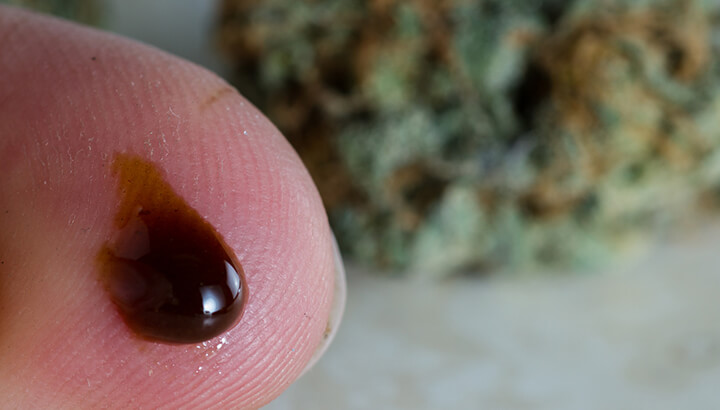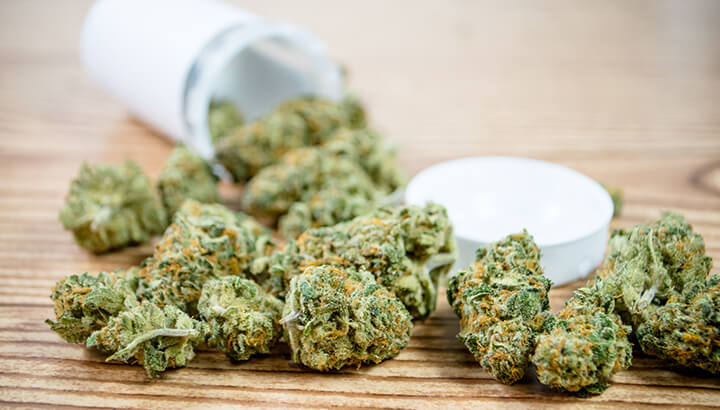
Imagine you are the parent of a child with a life-threatening form of epilepsy. Your young one experiences hundreds of debilitating and horrific seizures on a weekly basis. If you are like most parents, then you’d do anything you could to find a medicine that helped them.
That’s the story of Paige and Matt Figi, whose daughter Charlotte had a severe form of epilepsy called Dravet’s syndrome. In fact, Charlotte’s grand mal episodes were so bad that her heart actually stopped several times. Paige and Matt tried every potential remedy doctors recommended, from medication to a medically induced coma, but nothing seemed to work.
After exhausting all conventional options, Matt and Paige stumbled across a Youtube video of a California boy with Dravet’s who had been helped by cannabis. The Figis made the courageous decision to give CBD oil — a non-psychoactive extract derived from medical marijuana — a chance. Miraculously, the cannabis-based medicine proved to be a life-changing and life-saving treatment.
Indeed, Charlotte’s seizures decreased dramatically from several hundred a week to just two or three a month. In addition, she began to make progress on multiple fronts, so much so that she started doing many things normal for her age such as walking and riding a bicycle. As her mother Paige put it, “[Before treatment] I didn’t hear her laugh for six months. I didn’t hear her voice at all, just her crying. I can’t imagine that I would be watching her making these gains that she’s making, doing the things that she’s doing [without the medical marijuana]. I don’t take it for granted. Every day is a blessing.”
The British government reclassifies CBD as medicine

A growing body of clinical studies are confirming anecdotal reports Charlotte’s story. A scientific and medical consensus is emerging. Cannabis-based medicines like CBD oil are helping patients with epilepsy, multiple sclerosis, fibromyalgia and numerous other conditions.
Recently, the UK moved to reclassify CBD as a legitimate medicine. The decision, made by Britain’s Medicines & Healthcare Regulatory Agency (MHRA) means that CBD products can now be distributed and used for medicinal purposes within the United Kingdom.
As a spokesperson for the agency put it, “We have come to the opinion that products containing cannabidiol (CBD) used for medical purposes are a medicine. MHRA will now work with individual companies and trade bodies in relation to making sure products containing CBD, used for a medical purpose, which can be classified as medicines, satisfy the legal requirements of the Human Medicines Regulations 2012.”
The DEA blows it by classifying CBD as a Schedule I drug
As our neighbors across the pond were crafting policy based on the evidence the Drug Enforcement Agency (DEA) in this country was busy ignoring it. In mid-December, the agency stealthily moved to classify CBD as a Schedule I substance. That designation encompasses drugs that have a high potential for abuse (like heroin) and no accepted medical use.
The DEA insisted that the establishment of a new drug code covering CBD was simply a bureaucratic measure intended to make it easier to track and distinguish research involving CBD extracts and marijuana. As Russell Baer, a DEA spokesperson explained, “It’s an internal accounting mechanism for us. The purpose is to drill down and get more accurate information about research that’s being conducted with CBD in particular.”
However, critics and legal experts are not convinced. They believe that the DEA’s actions are a ruse to ensure that all cannabinoids — including non-psychoactive CBD — remain illegal. In fact, they contend that the DEA’s action amounts to an illegal power grab.
For example, as Robert Hoban, a law professor at the University of Denver notes, “This action is beyond the DEA’s authority. The DEA can only carry out the law, they cannot create it. Here, they’re purporting to create an entirely new category called ‘marijuana extracts,’ and by doing so wrest control over all cannabinoids. They want to call all cannabinoids illegal. But they don’t have the authority to do that.”
The science behind medical marijuana

The DEA’s actions are probably unlawful. But they are demonstrably unscientific, irrational and inhumane as well. In recent years, scientists have discovered that the body’s endocannabinoid system — a network of receptors responsible for hormonal signaling and homeostasis — is critical to our emotional and physical well-being.
Indeed, the endocannabinoid system is so crucial to regulation of our emotional and physical health that it’s possible to think of this network as the intersection of the mind and body. Deficiencies or impairments in the endocannabinoid system are believed to be behind a wide range of conditions including mood disorders, immune dysfunction, irritable bowel syndrome and migraines.
Cannabinoids in marijuana mimic the body’s natural system
The body manufactures endocannabinoids naturally. However, scientists like Dr. Ethan Russo speculate that lack of exercise, stress, bad diet and poor quality sleep may contribute to endocannabinoid deficiencies, which can manifest as chronic pain, fatigue and immune dysfunction.
The cannabinoids found in marijuana, of course, mimic the function of the endocannabinoids that the body manufactures. The centrality of the endocannabinoid system to health and the fact that cannabinoids found in marijuana can help address deficiencies goes a long way in explaining why cannabis-based medicines are proving so effective for immune disorders like MS, fibromyalgia and arthritis.
Cannabis is also proving efficacious for a host of other maladies, from epilepsy to chronic pain to metabolic disorders as well. Dr. Ethan Russo sums up the growing recognition among health practitioners well when he writes, “Cannabis is the single most versatile herbal remedy and the most useful plant on Earth. No other single plant contains as wide a range of medically active herbal constituents.”
Even with DEA verdict, Americans support medical marijuana
Britain’s decision to reclassify CBD as medicine is simply an acknowledgment of the scientific evidence. On the other hand, on the face of it, the DEA’s move to designate CBD as a Schedule I substance reeks of hypocrisy and a willful blindness to scientific and medical facts. The agency’s decision is not just contrary to reason, sane public policy and compassion. It is also decidedly at odds with public opinion — at least 89 percent of Americans now support the use of medical marijuana. The DEA’s edict is destined to go up in smoke.
— Scott O’Reilly

